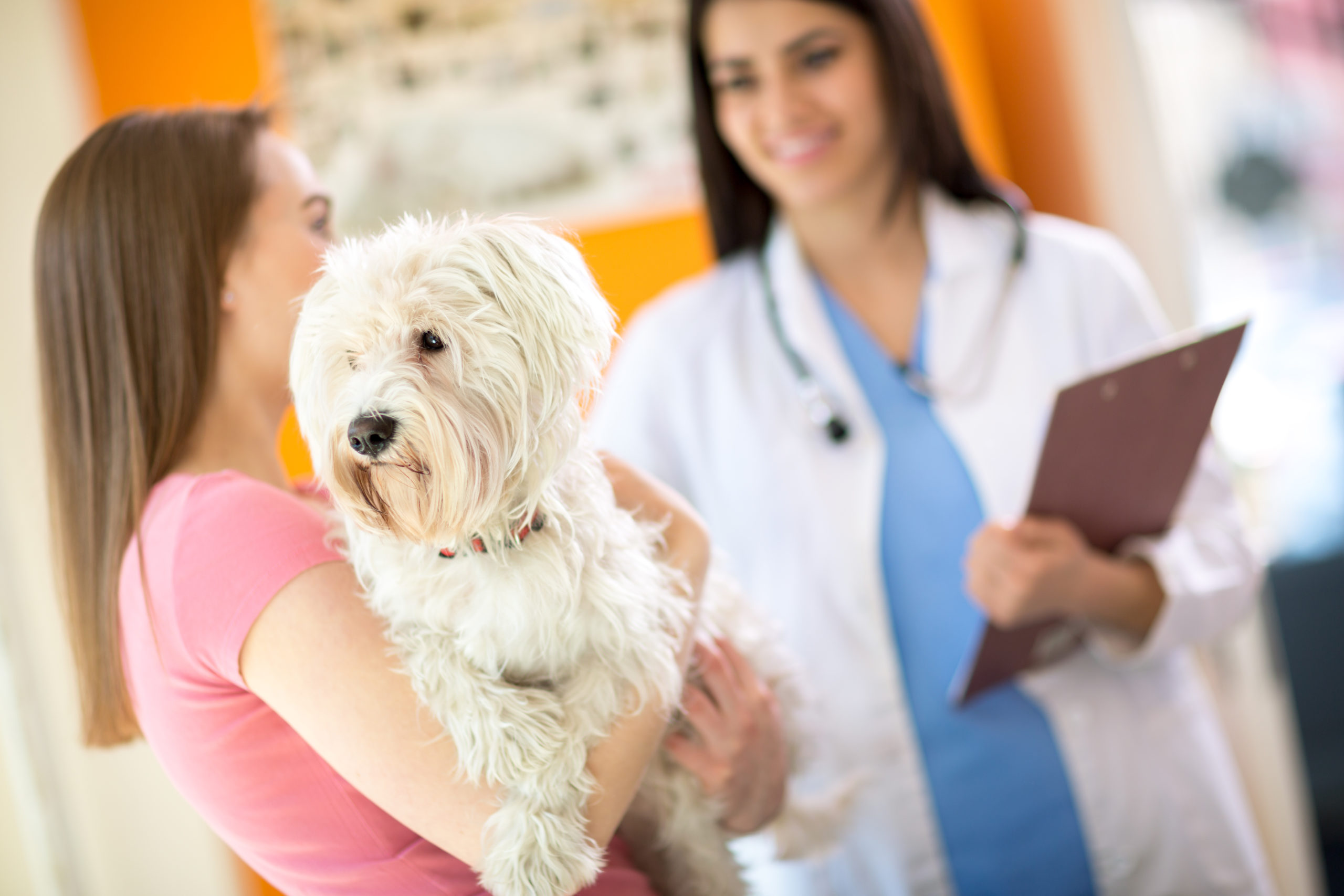
Should I take my dog to the vet?
This can be a tough decision. Many pet emergencies aren’t subtle, but some problems that can be potentially life-threatening, like bloating, can begin as symptoms that seem minor. We at Pet Shield are here to help navigate through this gray area and make sure your pet gets the care they need, when they need it.
Emergency Symptoms
First thing’s first – if you notice your pet demonstrating any of these symptoms, this is cause for concern, and you should take them to the vet right away:
- Seizures
- Difficulty breathing, stopped breathing, or unconsciousness
- Repeated vomiting, or vomiting blood
- Bleeding from the mouth, nose, or eyes
- Hard, swollen abdomen
- Open wounds, or possible broken bones
- Visible shaking or whining from extreme pain
- Poisoning from eating something toxic
Abnormal Change in Eating Habits
It’s normal for your pet’s easting routine to change slightly from time to time, but a total loss of appetite can be a sure sign to visit a veterinarian.
Vomitting
If your pet vomits more than once within a 12-hour period, it’s best to take them to the vet. Though they may not be experiencing life-threatening symptoms, frequent vomiting is a sign of a health issue that needs attention.
Excessive Thirst
Make sure you have an idea of just how much water your dog drinks each day. If your dog is drinking a lot more than usual, this could be a developing kidney disease or diabetes. Pay attention to how often you’re refilling their water bowl or taking them out to pee.
Major Change in Energy Levels
A major lack of energy and enthusiasm is a sign that something could be troubling your dog. Regular fatigue can often be related to high temperatures, but you should see a vet if these symptoms last more than two days.
Rough or Dry Coat
A healthy dog’s coat will be thick, shiny, and soft. If your dog’s coat is rough, dry, or shows bald patches, this could be an indicator for a health concern. The cause of this could be an allergy, dietary concern, skin disease, etc.
Unusual Stool
Your dog should have small, firm, moist stools. Dry, hard stools may be a sign of health dietary problems or dehydration. Take your dog to the vet if they show any of these symptoms:
- diarrhea for 24 hours or longer
- worms in stool
- blood or mucus in the stool
- straining
If you notice your dog is scooting or dragging their behind, they may have worms, diarrhea, infected anal glands, or a urinary tract infection.
Sudden Weight Loss
Regardless of your dog’s initial weight, rapid weight loss is cause for concern, and should be examined by a vet. If your dog is losing weight quickly, this could be due to a serious health concern.
Cloudy or Red Eyes
An infection or injury to the eyes can result in cloudy or red eyes, discharge, or constant squinting from your dog. If this happens, take your dog to the vet right away – some diseases affecting the eyes can progress to blindness. Your vet should be able to offer medication to cure an infection.
Don’t forget pet insurance!
If your dog is experiencing any of these symptoms, a trip to the vet is necessary, but it can be costly. Pet insurance makes sure you and your pet can always be prepared for the worst. To learn more about Pet Shield’s coverages, give us a call at 1-844-421-2121.